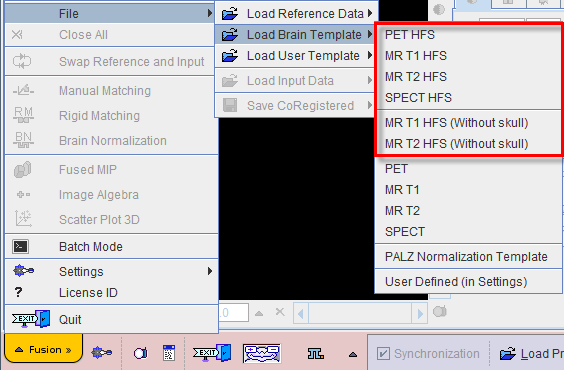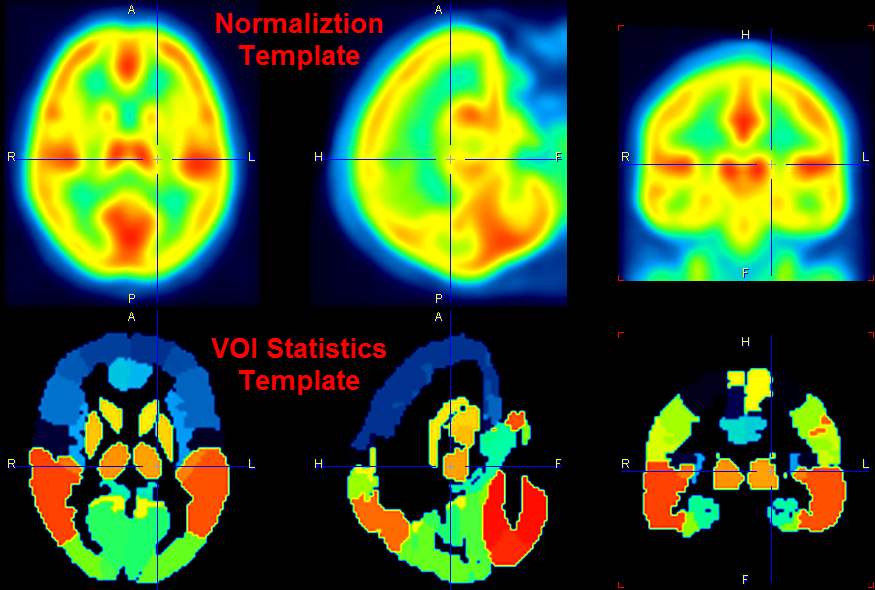For the analysis of human brain data the AAL-VOIs VOI atlas is available. It is the result of an automatic anatomical labeling [1] of the spatially normalized, single subject, high resolution T1 MRI data set provided by the Montreal Neurological Institute (MNI)[2]. The atlas is provided in HFS orientation (radiological convention) in the MNI atlas space. All images which have been spatially normalized to one of the HFS templates in the fusion tool can be analyzed with the AAL atlas.
Spatial Normalization
Several normalization templates are available in the fusion tool as menu entries Fusion/File/Load Brain Template as illustrated below.

The user should select the reference which is most similar to his experimental data. The images of these templates can be found in the resources/templates directory.
AAL VOI Atlas
For the statistical analysis, the AAL-VOIs VOI atlas can be selected in the list of included VOI atlases. The corresponding files can be found in the resources/templates/voitemplates/AAL-VOIs directory.

There is also the VOI template AAL-Merged available wherein some of the small AAL regions have been combined.
Note: There is a slight asymmetry in the AAL template VOIs which corresponds to the natural asymmetry of normal brains and which is also part of the MNI template. The resolution of the AAL atlas is 2mm in all directions. Stereotactic data with other resolution must be interpolated to 2mm and brought into HFS orientation in order to apply the AAL template within PMOD.
[1] Tzourio-Mazoyer N, Landeau B, Papathanassiou D, Crivello F, Etard O, Delcroix N, et al. Automated anatomical labeling of activations in spm using a macroscopic anatomical parcellation of the MNI MRI single subject brain. Neuroimage 2002; 15: 273-289. DOI
[2] Collins DL, Zijdenbos AP, Kollokian V, Sled JG, Kabani NJ, Holmes CJ, Evans AC. Design and construction of a realistic digital brain phantom. IEEE Trans Med Imaging. 1998 Jun;17(3):463-8.